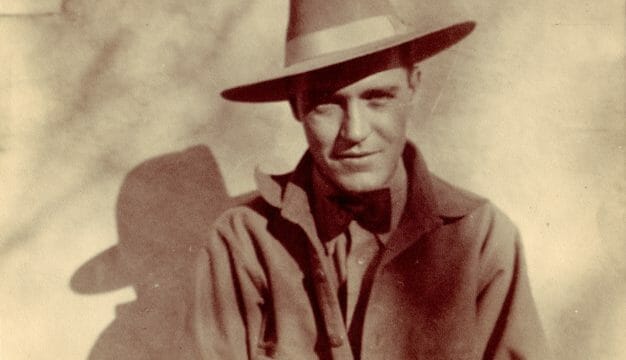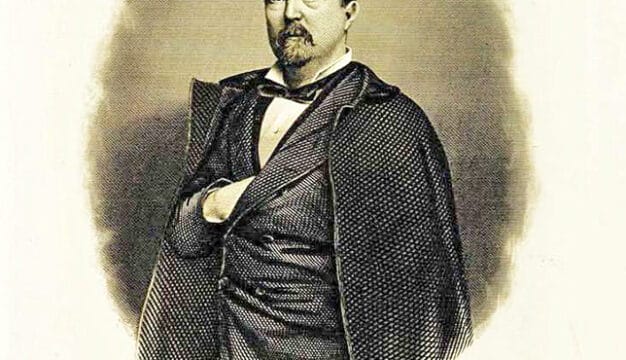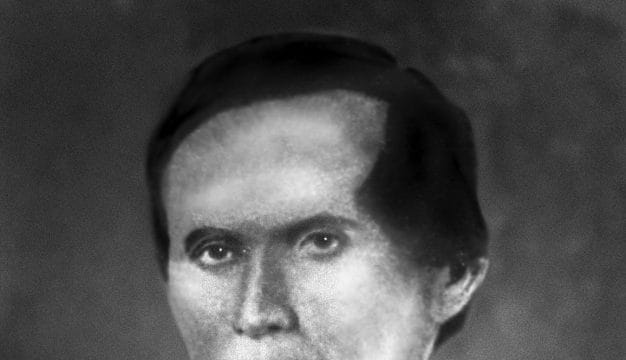Gregory Bernard Calhoun
Gregory Bernard Calhoun (1952-2018) of Montgomery, Montgomery County, was known for building one of the largest Black-owned businesses in the state of Alabama, Calhoun Enterprises. He went from bagging groceries as a teenager to owning the same store and built a small franchise of grocery stores, Calhoun Foods, that operated mostly in the Montgomery area for some 30 years. He also invested in numerous other business opportunities and was involved in many local charitable causes and was an acquaintance of politicians of both parties as well as prominent African American celebrities.
Calhoun was born September 10, 1952, in Detroit, Michigan, to Thomas Calhoun Sr. and Coretta Calhoun; he had five siblings. In Alabama, his father was a business owner, and his mother was at one point head of housekeeping at a chain hotel on Selma Highway, Route 80. He and his father took part in the third Selma-to-Montgomery march, where he met civil rights leader Martin Luther King Jr. At age 14, he was hired to bag groceries at the local Southwest Super Foods grocery store and steadily rose up the ranks to manage the store then landed an executive position with its parent company, Hudson-Thompson. He was married around 1970 to Verlyn Calhoun, with whom he would have three children.
When the store was put up for sale in 1984, Calhoun bought it with $35,000 in savings and a $700,000 loan from a New York City bank. Calhoun was turned down by the Small Business Administration and several local banks, according to a 1991 profile in Black Enterprise. He soon began making improvements at the store and then formed Calhoun Foods, later buying additional supermarkets in Montgomery; Tuskegee, Macon County; and Selma, Dallas County. He would own 15 such supermarkets in the area. In 1990, the U.S. Department of Commerce honored Calhoun’s company as the national minority retail firm of the year.
His stores attracted a strong mix of consumers, both Black and white, and capitalized on changing consumer tastes by providing a variety of foods. He noted in the interview that white consumers began to embrace black-eyed peas and collard greens and more and more Black consumers began to eat cauliflower and asparagus. According to some accounts, he was the first African American in the South to own a major grocery store and his was one of the few Black-owned full-service supermarkets in the country. The last Calhoun Grocery store in Montgomery closed in 2015 owing to competition from other food retailers and bargain chains. The locations in Selma and Tuskegee remained open for some time after, but also closed.
In addition to his business endeavors, Calhoun was involved in philanthropic causes. He formed the Calhoun Celebrity Golf Tournament, which was a major fundraising effort in support of the Sickle Cell Foundation of Greater Montgomery, Macon, and Dallas Counties, and assisted displaced and homeless veterans, among other causes. Through the golf tournament, he was befriended and supported by entertainer Steve Harvey, and they would travel and golf together for many years. In 2015, the pair formed HarCal Inc. and planned to open a latex glove plant in Eufaula, Barbour County, buying the Ameritex/Aladan plant that closed in the late 2000s. The only latex plant in the United States, it had lost its contract with the U.S. Agency for International Development to produce condoms for AIDS prevention. They hoped the plant would result in several hundred jobs in an under-served community and market to major retailers, including Walmart, Kroger, and Winn Dixie, and worked to refurbish the plant. The facility was later taken over by another firm.
Calhoun was a well-known participant in African American business and political circles as well. He was the first African American elected to the Food Marketing Institute (FMI) Board of Directors. At FMI, Calhoun served three consecutive terms on the organization’s executive committee and established the FMI African American Share Group. He established a consulting business to assist Fortune 500 companies navigate diversity and minority issues. He also served on the board of RainbowPUSH, the Chicago-based organization formed under civil rights and social justice activist Jesse Jackson. In 1999, he participated in an economic tour with Pres. Bill Clinton and during the administration of Pres. Barack Obama was appointed to the White House Healthy Food Financing Initiative, part of First Lady Michelle Obama’s effort to reduce childhood obesity and make more nutritional and affordable foods, particularly fresh fruit and vegetables, available in lower income neighborhoods. Not long before his death, Calhoun and Harvey were working with both the outgoing presidential administration of Barack Obama and that of his successor, president-elect Donald Trump, for assistance with the latex plant in Eufaula and African American employment in general.
He was superficially involved in a political scandal when U.S. representative from Illinois Jesse Jackson Jr. was accused of tax improprieties. Jackson allegedly failed to report on his taxes $25,000 Calhoun had loaned to him. Calhoun and his wife also reportedly donated $10,000 to his campaign in 2012. Calhoun was not accused of wrongdoing, but Jackson resigned from Congress in 2012 and later served time in prison for a variety of offences.
Calhoun died in Los Angeles on October 11, 2018. His life was recognized by many Black luminaries, nationally and locally, including Ervin “Magic” Johnson, Jesse Jackson Sr., Al Sharpton, and future Montgomery mayor Steven Reed. Alabama congresswoman Terri Sewell of the Seventh Congressional District, which includes parts of Montgomery, paid tribute to Calhoun in a speech to Congress. He was buried at Alabama Heritage Cemetery in Montgomery.



